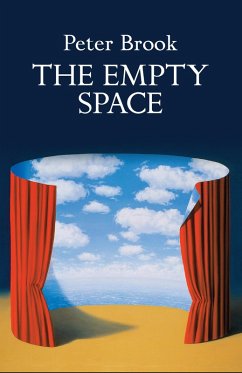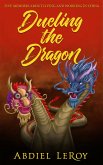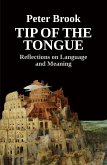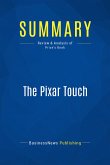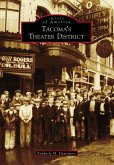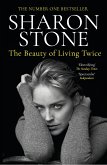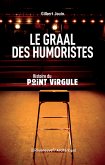'I can take any empty space and call it a bare stage.'
Peter Brook's seminal book, an acknowledged classic of theatre writing, sets out many of the ideas about theatre which have informed his lifelong work as a theatre director, from his iconic 'white box' production of A Midsummer Night's Dream and his ground-breaking adaptation of The Mahabharata, to his ongoing work at the International Centre for Theatre Research.
Available as an ebook for the first time since its original publication in 1968, The Empty Space remains a cornerstone of thinking about theatre. Written with a refreshing clarity, and full of personal insights, it sets out Brook's influential concept of the four different types of theatre - The Deadly Theatre, The Holy Theatre, The Rough Theatre and The Immediate Theatre - and investigates the evolution of theatrical ideas, from Stanislavsky and Method acting to Brecht and Happenings, as well as examining different ways of playing Shakespeare.
Firmly rooted in Brook's own experience as a ceaselessly questing theatre-maker, The Empty Space continues to inspire and instruct new generations of theatre-makers everywhere.
Peter Brook's seminal book, an acknowledged classic of theatre writing, sets out many of the ideas about theatre which have informed his lifelong work as a theatre director, from his iconic 'white box' production of A Midsummer Night's Dream and his ground-breaking adaptation of The Mahabharata, to his ongoing work at the International Centre for Theatre Research.
Available as an ebook for the first time since its original publication in 1968, The Empty Space remains a cornerstone of thinking about theatre. Written with a refreshing clarity, and full of personal insights, it sets out Brook's influential concept of the four different types of theatre - The Deadly Theatre, The Holy Theatre, The Rough Theatre and The Immediate Theatre - and investigates the evolution of theatrical ideas, from Stanislavsky and Method acting to Brecht and Happenings, as well as examining different ways of playing Shakespeare.
Firmly rooted in Brook's own experience as a ceaselessly questing theatre-maker, The Empty Space continues to inspire and instruct new generations of theatre-makers everywhere.
Dieser Download kann aus rechtlichen Gründen nur mit Rechnungsadresse in A, B, BG, CY, CZ, D, DK, EW, E, FIN, F, GR, H, IRL, I, LT, L, LR, M, NL, PL, P, R, S, SLO, SK ausgeliefert werden.
"Peter Brook speaks of the theater of the past and the present, of its changes, of its various forms, of what he has seen and sees and of his own work. He speaks with the eloquence, and with the excitement of the explorer finding his way into a vast unknown but, he believes, knowable world...The Empty Space is a brilliantly written, even ecstatic book, full of information of the world's theater and of this ecstatic book, full of information of the world's theater and of this leading worker in the theater." -Herman Shumlin, Chicago Sun-Times
"Peter Brook has written a book that is really about the theater. When he speaks about himself, it is with a view to impart ideas pertinent to craftsmen, serious playgoers and critics alike...What I treasure most in the book is that it always harks back to the artistic, social psychological, practical bases of the theater as a concern of cultural significance." -Harold Clurman, The New York Times Book Review
"This is a brilliant book, and should be read by many besides the passionate few to whom it will be required reading." -W. A. Darlington, The Daily Telegraph (London)
"Theatergoers who care about the nature and destination of contemporary drama will be drawn to The Empty Space with ravenous interest." -Time
"The parts of the book which I enjoyed without reservation were Brook's brief but marvelous analyses of Shakespeare's King Lear and Measure for Measure, two plays of which he has made outstandingly the best production of our day." -Tyrone Guthrie, The Minneapolis Star
"A classic...a hugely influential analysis of the problems confronting contemporary theatre. It's a powerful expression of the belief that it is performance, not a play text in the abstract, that is the essence of stage art." -Paul Taylor, The Independent
"Since there is no one on the theatrical scene quite like Brook, there is no other book quite like this one. A must for any and every college library." -Choice
"Kein Regisseur hat das moderne Theater in Westeuropa stärker beeinflußt als Peter Brook, die Spuren seiner Theaterarbeit lassen sich mühelos in die Gegenwart verfolgen. Beharrlich hat er sich dem Theaterbetrieb mit seiner eingefahrenen Rhetorik widersetzt und statt dessen die Unberechenbarkeit des Theaterereignisses betont. 'Die Wahrheit im Theater ist immer auf Wanderschaft', schrieb der Regisseur vor 20 Jahren in 'Der leere Raum' - noch immer ein Klassiker der Theaterliteratur." (Rolf Suhl, Szene)
"Kaum ein anderes Buch hat für das Theater ähnliche Bedeutung erlangt; oft wird es als eine der Schriften zum Theater überhaupt bezeichnet." (Uwe Richterich, Diskurs)
"Peter Brook has written a book that is really about the theater. When he speaks about himself, it is with a view to impart ideas pertinent to craftsmen, serious playgoers and critics alike...What I treasure most in the book is that it always harks back to the artistic, social psychological, practical bases of the theater as a concern of cultural significance." -Harold Clurman, The New York Times Book Review
"This is a brilliant book, and should be read by many besides the passionate few to whom it will be required reading." -W. A. Darlington, The Daily Telegraph (London)
"Theatergoers who care about the nature and destination of contemporary drama will be drawn to The Empty Space with ravenous interest." -Time
"The parts of the book which I enjoyed without reservation were Brook's brief but marvelous analyses of Shakespeare's King Lear and Measure for Measure, two plays of which he has made outstandingly the best production of our day." -Tyrone Guthrie, The Minneapolis Star
"A classic...a hugely influential analysis of the problems confronting contemporary theatre. It's a powerful expression of the belief that it is performance, not a play text in the abstract, that is the essence of stage art." -Paul Taylor, The Independent
"Since there is no one on the theatrical scene quite like Brook, there is no other book quite like this one. A must for any and every college library." -Choice
"Kein Regisseur hat das moderne Theater in Westeuropa stärker beeinflußt als Peter Brook, die Spuren seiner Theaterarbeit lassen sich mühelos in die Gegenwart verfolgen. Beharrlich hat er sich dem Theaterbetrieb mit seiner eingefahrenen Rhetorik widersetzt und statt dessen die Unberechenbarkeit des Theaterereignisses betont. 'Die Wahrheit im Theater ist immer auf Wanderschaft', schrieb der Regisseur vor 20 Jahren in 'Der leere Raum' - noch immer ein Klassiker der Theaterliteratur." (Rolf Suhl, Szene)
"Kaum ein anderes Buch hat für das Theater ähnliche Bedeutung erlangt; oft wird es als eine der Schriften zum Theater überhaupt bezeichnet." (Uwe Richterich, Diskurs)
"Kein Regisseur hat das moderne Theater in Westeuropa stärker beeinflußt als Peter Brook, die Spuren seiner Theaterarbeit lassen sich mühelos in die Gegenwart verfolgen. Beharrlich hat er sich dem Theaterbetrieb mit seiner eingefahrenen Rhetorik widersetzt und statt dessen die Unberechenbarkeit des Theaterereignisses betont. 'Die Wahrheit im Theater ist immer auf Wanderschaft', schrieb der Regisseur vor 20 Jahren in 'Der leere Raum' - noch immer ein Klassiker der Theaterliteratur." (Rolf Suhl, Szene)
"Kaum ein anderes Buch hat für das Theater ähnliche Bedeutung erlangt; oft wird es als eine der Schriften zum Theater überhaupt bezeichnet." (Uwe Richterich, Diskurs)
"Kaum ein anderes Buch hat für das Theater ähnliche Bedeutung erlangt; oft wird es als eine der Schriften zum Theater überhaupt bezeichnet." (Uwe Richterich, Diskurs)

